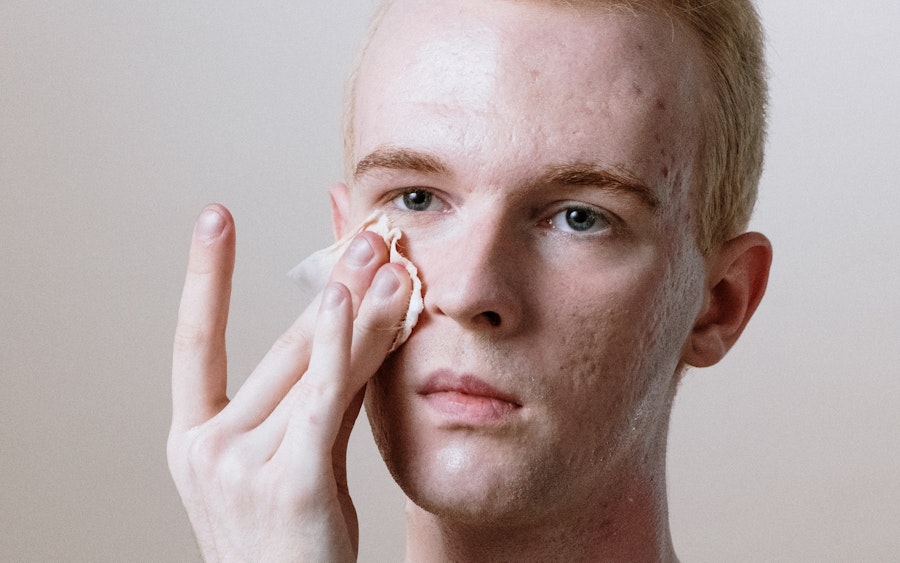We get asked all the time: “Will you ever make makeup wipes?” And honestly—we’ve thought about it. But when we took a step back, looked at the full picture, and truly listened to what our values and your skin (and the planet) need… the answer became clear: No, we won’t.
The Hidden Truth Behind Those Convenient Wipes
Makeup wipes might feel like the holy grail of lazy-night skincare. They’re fast. They’re easy. They’re everywhere. But beneath that soft, damp square lies a story that’s not so pretty.
At first glance, they seem harmless—just a quick swipe and you’re done, right? But over time, the damage to both your skin and our planet becomes impossible to ignore.

The Problem with What They’re Made Of
Most makeup wipes are made from synthetic fibers like polyester or polypropylene. Sounds industrial? That’s because it is. These materials aren’t just harsh on your skin—they’re non-biodegradable and contribute to the growing problem of plastic waste.
Even worse, the formula inside many wipes is packed with alcohol, fragrance, and preservatives that can seriously disrupt your skin’s delicate balance.
What Makeup Wipes Can Do to Your Skin
We hate to break it to you—but even the priciest, “gentle” wipes are doing more harm than good:
- They can irritate and strip your skin. Many contain alcohol or synthetic fragrances, both of which dry out your skin and can trigger redness, flaking, or even allergic reactions.
- They’re not actually cleansing. Sure, they remove surface makeup—but they often leave behind dirt, bacteria, and product residue. That’s a recipe for clogged pores and breakouts.
- They pull and tug. Wiping and rubbing—especially around your delicate eye area—can lead to irritation and even accelerate signs of aging.
- They don’t work for everyone. If you have dry, sensitive, or acne-prone skin, the ingredients in most wipes can make your skin even more vulnerable.
And here’s something we wish more people knew: clean skin isn’t just about what you remove—it’s about how gently and thoroughly you do it.
The Environmental Cost is Devastating
This is one of the biggest reasons why we’ve chosen not to make makeup wipes.
Makeup wipes don’t just disappear after you toss them. They end up in landfills, oceans, and even sewers—clogging up waterways and harming marine life.
- In the UK alone, nearly 15 billion wet wipes are used each year.
- In the US, around 20 million pounds of single-use wipes are thrown out every single day.
- And even the “flushable” ones? They’re not biodegradable. Not really.
Marine life suffers. Microplastics break down and work their way up the food chain, eventually ending up… back in us.
What About Biodegradable Wipes?
Yes, some companies are making “biodegradable” or “compostable” wipes from plant-based materials—and we love seeing the innovation.
But here’s the catch: to keep them shelf-stable, these wipes almost always require artificial preservatives—and that’s not something we’re comfortable using in our products.
We believe your skin deserves clean, non-toxic ingredients—not a trade-off between your health and the environment.
So, What’s the Best Alternative?
We’re proud to offer a gentle, oil-based makeup remover that comes in a glass bottle—not plastic—and contains just five simple, natural ingredients. That’s it.
No alcohol. No harsh surfactants. No toxins. Just clean, nourishing oils that break down makeup, sunscreen, and impurities—while supporting your skin’s natural barrier.
Plus, it’s reusable: pair it with a washable cloth or cotton round, and you’ve got a zero-waste routine that’s kind to your skin and kind to the planet.
Let’s Be Honest—You Deserve Better
We know it’s tempting. Wipes are marketed to be fast, easy, and “good enough.” But you—and your skin—deserve more than just good enough.
So next time you reach for a wipe, take a breath. Think about your skin. Think about the planet. And consider choosing a gentler, more thoughtful way to cleanse.
Also Read : Pigmentation Serums: How They Work and Why They Matter for Dark Spots



